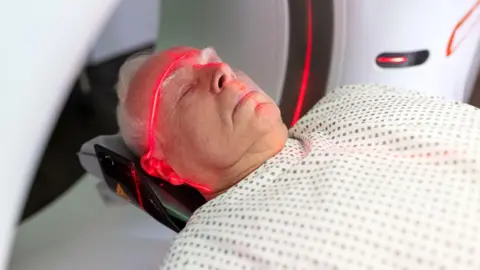Radioisotope shortage delaying cancer treatment 'resolved'
 Getty Images
Getty ImagesA temporary reduction in the production of radioisotopes, which are mainly used for diagnosing cancer, including prostate and breast cancer, has been resolved.
In October, cancer and heart patients in Northern Ireland were told they were likely to have treatment delayed or cancelled due to the shortage.
This was due to a worldwide shortage which impacted medicines supply chains to the UK.
In a written statement to the Northern Ireland Assembly, the health minister said the supply of affected radioisotopes has returned to normal.
Mike Nesbitt said his department worked closely throughout the shortage "to develop and implement mitigations" aimed at making the best use of available stock and "ensuring critical patients were prioritised".
"I am thankful for the collaborative approach that was taken by all parts of the system in helping to manage the unique challenges presented by this radioisotope shortage, which ensured fair and equitable access for patients across the UK," he added.
 PA Media
PA MediaNesbitt said alternative scanning was offered where appropriate as health and social care providers worked to mitigate the impact on patients as far as possible.
"I appreciate how difficult this issue has been for patients," he added.
"All trusts are actively working to ensure that patients impacted by this issue receive a rescheduled appointment as soon as possible, where this is still required, whilst continuing to ensure patients with the most critical needs are prioritised."
What are radioisotopes?
Radiotherapy, or radioisotope therapy, uses small amounts of radiation to provide diagnostic information about the function of a patient’s organs.
It can also be used to treat them.
Diagnostic procedures using radioisotopes are now routine in the NHS.
Radiotherapy can be used to treat some medical conditions, especially cancer, using radiation to weaken or destroy targeted cells.
There was a world-wide shortage due to a temporary reduction in the production of molybdenum-99 which is used to generate technetium-99m, the Department of Health previously said.
The radioisotope technetium-99m is used safely for diagnostics within health and social care.
Clinicians are to review patients on a case-by-case basis to discuss options with the patients directly.
The health minister confirmed that production from the affected reactors started "ahead of schedule" and supplies have now resumed.
